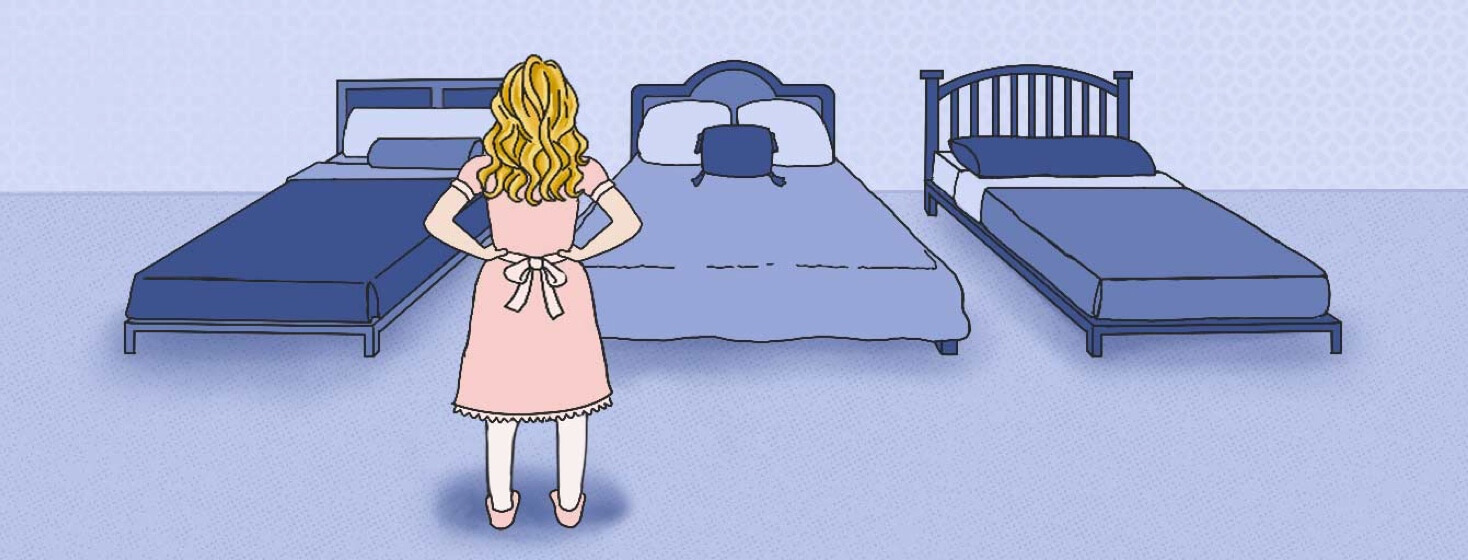Simplifying Sleep for Migraineurs
Sleep is a tricky thing when it comes to migraine. Just like Goldilocks and the three bears, we strive to find that perfect balance – not too much, but not too little. We know that the quantity of sleep matters, but it's also about the quality and timing of those precious hours.
What are our current sleeping habits?
If I’m being honest, just thinking about all the intricacies of sleep and migraine can be overwhelming. We have questions and a lot of “sleep rules” swirling around in our heads.
- Are we staying up late into the wee hours and sleeping in? Or are we struggling to fall asleep early, only to find ourselves wide awake before the sun rises?
- Do naps during the day impact our nighttime rest?
- Does our sleep schedule fluctuate throughout the week or change with the seasons?
How can sleep be simplified?
Navigating the complexities of sleep and migraine can make our brains ache. We recognize the importance of sleep, but let's not overcomplicate it. After all, stressing about sleep seems counterproductive, doesn't it? So, let's simplify. One of my favorite questions to ask in life is, “If this were simple what would it look like?”
Here are the three keys that have helped me simplify the "rules" of sleep and find a sense of balance in my life with migraine.
Tip #1
One of the first steps to simplifying sleep is to establish a consistent routine. Keeping a regular sleep schedule, even on weekends, helps regulate our body's internal clock. I aim to go to bed and wake up at the same time each day to support a natural sleep-wake cycle. For me, this is around 9:30 pm and 5:30 am. I might deviate a little on the weekend but it’s typically no more than an hour.
Tip #2 
Have you heard of the term “sleep hygiene?” It refers to the practices and habits that support good sleep. The more I learned about it, the more motivated I was to start creating my own sleep routine. There are endless practices you could do, but here’s what I’m currently doing and loving: keep the bedroom cool and dark, diffuse lavender essential oils, avoid electronic devices before bed (I’m not perfect, but I am getting better!), and wear an eye mask. Again, there are many other practices you can explore, these are just what is currently working for me.
Tip #3 
Knowing that each one of us is unique, and our bodies have their own sleep preferences, I had to pay attention to my body's signals and adjust my sleep routine accordingly. For example, if I’m really fatigued, I can take a short nap during the day and still sleep at night. However, my threshold for a late night on the weekend is pretty low. It’s important that each of us be mindful of how different sleep schedules or changes in seasons impact your overall health and energy.
Can sleep and migraine coexist?
Remember, you are your best sleep advocate, and tuning in to your body's cues can help you find what works best for you. So, let's take a deep breath and release the tension around sleep. With a little intention, we can experience a restful night sleep, and with a simplified approach, we can find the sweet spot where sleep and migraine coexist.
I’m curious, do you have any good sleep tips that you can share with us? Please comment below!

Join the conversation